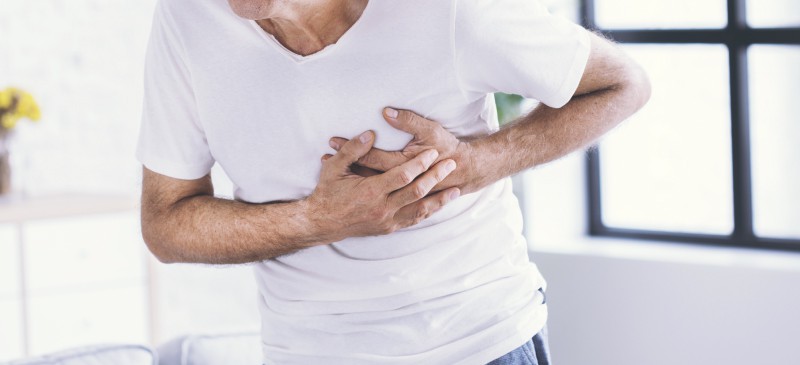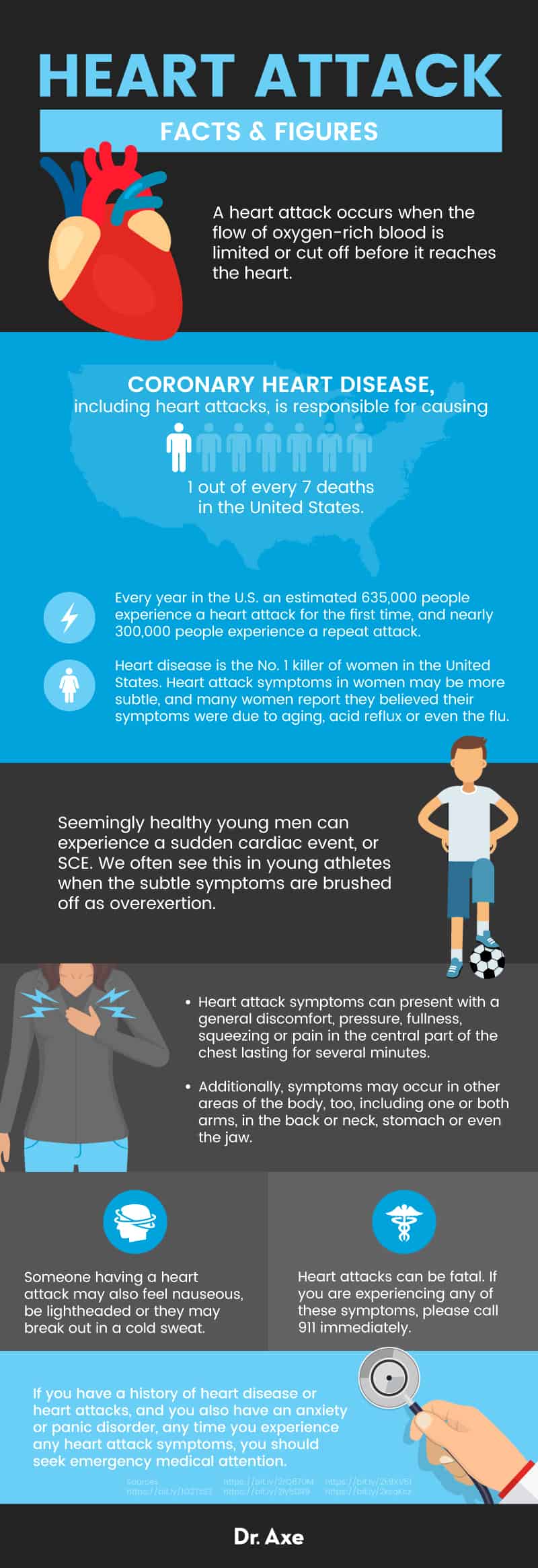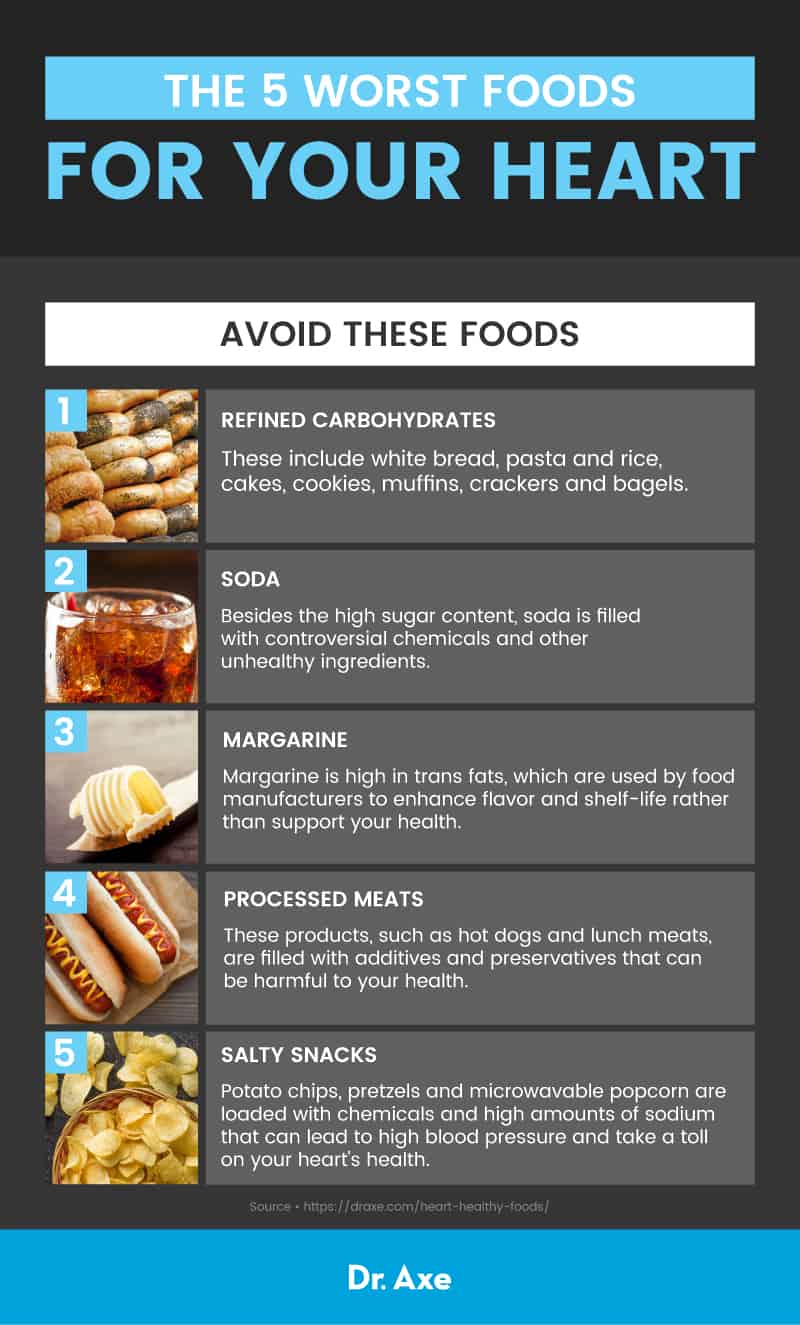This Dr. Axe content is medically reviewed or fact checked to ensure factually accurate information.
With strict editorial sourcing guidelines, we only link to academic research institutions, reputable media sites and, when research is available, medically peer-reviewed studies. Note that the numbers in parentheses (1, 2, etc.) are clickable links to these studies.
The information in our articles is NOT intended to replace a one-on-one relationship with a qualified health care professional and is not intended as medical advice.
This article is based on scientific evidence, written by experts and fact checked by our trained editorial staff. Note that the numbers in parentheses (1, 2, etc.) are clickable links to medically peer-reviewed studies.
Our team includes licensed nutritionists and dietitians, certified health education specialists, as well as certified strength and conditioning specialists, personal trainers and corrective exercise specialists. Our team aims to be not only thorough with its research, but also objective and unbiased.
The information in our articles is NOT intended to replace a one-on-one relationship with a qualified health care professional and is not intended as medical advice.
Know When It’s a Heart Attack: 10 Heart Attack Symptoms (+ 7 Tips to Help Recovery)
May 25, 2018

Dramatically clutching the chest and slowly sinking to the floor is often how heart attacks are presented in television and movies. And while heart attack symptoms can arise suddenly and be quite intense, more often the symptoms start more slowly and are milder, according to the American Heart Association. (1)
Heart attack symptoms can present with a general discomfort, pressure, fullness, squeezing or pain in the central part of the chest lasting for several minutes. Additionally, symptoms may occur in other areas of the body, too, including one or both arms, in the back or neck, stomach or even the jaw.
Someone having a heart attack may also feel nauseous, be lightheaded or they may break out in a cold sweat. Heart attack symptoms in men often differ from heart attack symptoms in women. The American Heart Association says that shortness of breath, nausea or vomiting and back or jaw pain are symptoms that are more common in women than in men.
If you are experiencing any of these symptoms, please call 911 immediately. The quicker you are seen by emergency responders, the sooner treatment can begin.
Recovering from a heart attack takes time, and there are a number of ways to help speed healing. Of course, it is preferable to never experience a heart attack and incorporating heart-healthy practices into your daily routine may help stave off coronary heart disease and a heart attack.
What Is a Heart Attack?
According to the American Heart Association, coronary heart disease, including heart attacks, is responsible for causing 1 out of every 7 deaths in the United States. (2)
Even more troubling is the fact that every year an estimated 635,000 people experience a heart attack for the first time, and nearly 300,000 people experience a repeat attack. Each heart attack injures the heart muscle, and the amount of damage depends a lot on the length of time it takes to receive emergency medical treatment.
So, what is a heart attack? It is an event where the flow of oxygen-rich blood is limited or cut off before it reaches the heart. Coronary arteries narrowed because of plaque buildup (atherosclerosis) are often the culprit. When plaque particulates come loose and break off, blood forms around them causing a clot. This clot can then block the blood flow completely, leading to ischemia. (3)
When your heart is damaged because of ischemia, the event can be called a heart attack (also known as a myocardial infarction). While some people will experience a variety of warning signs, if the root cause of the heart attack is atherosclerosis, typically a heart attack can occur suddenly, without any noticeable warning signs.
It is important to note the difference between cardiac arrest and a heart attack. A heart attack arises when there is a problem in the circulation of oxygen-rich blood, while cardiac arrest is caused by an electrical, or mechanical problem in the heart such as an abnormal or irregular heartbeat or an arrhythmia. (3)
Cardiac arrest causes the heart to stop suddenly, and a heart attack can cause it. Death can occur within just moments after the heart stops beating. Both heart attacks and cardiac arrest can be treated, but time is of the essence. CPR and the use of a defibrillator to shock the heart back into a normal rhythm may reverse cardiac arrest. Call 911 immediately if you believe you or someone you know is experiencing either cardiac event.
Signs and Symptoms
The type and severity of heart attack symptoms vary from person to person, and by gender. The following symptoms are common, but it is important to understand that the more of the symptoms you have concurrently, the greater the possibility is that you are having a heart attack. (4)
- Pressure, tightness, pain, aching or squeezing sensation in the chest that may radiate to the neck, jaw or back
- Nausea
- Indigestion
- Heartburn
- Abdominal pain
- Shortness of Breath
- Cold sweats
- Fatigue
- Lightheadedness
- Sudden dizziness
Heart disease is the No. 1 killer of women in the United States. Heart attack symptoms in women may be more subtle, and many women report they believed their symptoms were due to aging, acid reflux or even the flu. (5)
According to the Cleveland Clinic, pre-heart attack symptoms in females may include:(6)
- Unusual fatigue
- Sweating and shortness of breath
- Pain that radiates from the chest to the jaw, back or neck.
For women, it can sometimes be difficult to tell the difference between women’s heart attack symptoms vs. anxiety or panic attack symptoms. These two conditions can present very similarly with symptoms including vertigo, dizziness, heart palpitations, numbness in the extremities, trembling and even fainting.
If you have a history of heart disease or heart attacks, and you also have an anxiety or panic disorder, any time you experience any heart attack symptoms, you should seek emergency medical attention. (7)
Symptoms of heart attack in men under 40 include many of the common symptoms mentioned above. The real challenge for this demographic is that seemingly healthy young men can experience a sudden cardiac event, or SCE. We often see this in young athletes when the subtle symptoms are brushed off as overexertion. (8)
Early Warning Signs
According to the Mayo Clinic, some people may experience early warning signs in the weeks, days or hours in advance of a heart attack, and they note particularly that recurrent chest pain, or angina, that is triggered by exertion and relieved by rest may be the earliest warning sign. Talk to your doctor as soon as possible if you experience chest pains.

Causes
The most common heart attack cause is a narrowed or blocked coronary artery, known as coronary artery disease. During a heart attack, the plaque that causes the narrowing of the artery ruptures and clouds the blood with cholesterol and other elements of the plaque. (4)
This event, can in turn, cause a blood clot to form and this clot can then completely impede the flow of blood through the artery.
In addition, a more rare condition called a coronary artery spasm can occur in a normal or healthy blood vessel or those that are blocked by atherosclerosis. This spasm can be life-threatening and is sometimes related to the use of illegal drugs like cocaine. A severe spasm can cause a heart attack. (3)
Even more rare is a spontaneous coronary artery dissection, or SCAD. This rare event occurs when there is spontaneous tearing in the coronary artery wall. In men, SCAD is generally related to extreme exertion. In healthy women, some evidence points to a hormonal link with SCAD occurring in postpartum women or around the menstrual cycle. (9)
Risk Factors
- Men 45 years of age and older
- Women 55 years of age and older
- Smoking or long-term exposure to secondhand smoke
- High blood pressure
- High blood cholesterol
- High triglyceride levels
- Diabetes
- Family history
- Atrial fibrillation
- Lack of physical activity
- Obesity
- Stress
- Illegal drug use
- History of preeclampsia
- Autoimmune diseases including lupus or rheumatoid arthritis (4)
Conventional Treatment
When presenting with heart attack symptoms, the following diagnostic tests will likely be ordered: (10)
- ECG
- Blood tests
- Chest x-ray
- Echocardiogram
- Angiogram
- Stress test
- CT
- MRI
In an emergency, the following medications may be used:
- Aspirin
- Thrombolytics
- Antiplatelet agents
- Blood-thinning medications
- Pain relievers
- Nitroglycerin
- Beta blockers
- ACE inhibitors
In certain cases, surgical intervention including a coronary angioplasty (with or without stenting) or coronary artery bypass surgery may be required.
Natural Ways to Boost Heart Attack Recovery
1. Participate in cardiac rehab
After a heart attack, your cardiologist will likely suggest you participate in a cardiac rehab program. Many hospitals provide this outpatient program to help heart attack survivors recover.
These programs consist of a combination of disciplines that focus not only on your recovery, but on lowering your risk for future cardiac events. Sessions often consist of emotional and mental support, physical exercise and creating a personalized heart-healthy lifestyle. (11)
2. Manage underlying conditions
Many underlying conditions including high blood pressure, high cholesterol and diabetes increase your risk for heart attacks. Treating these conditions effectively may help improve your recovery time.
3. Stop smoking
If you smoke, stop smoking now and avoid secondhand smoke.
4. Lose weight
If you are overweight, eat a nutrient-dense, healthy diet to take off any extra pounds. Getting to a healthy weight and maintaining it is linked to better heart health.
5. Exercise
Heart attack survivors are often hesitant to exercise out of fear of experiencing another heart attack. However, once your cardiologist determines that it is safe for you to exercise, follow their recommendations. Remember, be gentle with yourself; your body has survived a traumatic event and it will take some time before you are performing at pre-heart attack levels. (12)
6. Treat depression
Depression is very common after a heart attack, and the symptoms can last six months, or even longer. Anxiety, anger, irritation, resentment and poor self-esteem can all be a part of the equation too. Talk therapy or a support group, sunshine and inhaling Roman chamomile essential oil may help. Again, be gentle with yourself during recovery; it is a process that requires healing of the mind, body and spirit. (13)
7. CoQ10, 100 milligrams twice a day
After a cardiac event, you may be prescribed statins to help prevent another heart attack. Taking a CoQ10 supplement may help to lower side effects of the medication while helping to regulate blood pressure. (14)
In a promising two-year clinical trial of patients with moderate to severe heart failure, patients were given either a placebo or CoQ10 supplement. At two years, those receiving CoQ10 had significantly fewer adverse cardiovascular events, lower death rate and a lower number of hospital stays. Researchers do urge 100 milligrams twice a day instead of a single 200-milligram dose once a day because of better absorption rates. (15)

Natural Ways to Keep Your Heart Healthy
According to the American Heart Association, around 20 percent of patients 45 and older who have a heart attack will have another within five years. Practicing the following heart-healthy lifestyle tips can improve heart health and keep your heart healthy. (17, 18)
1. Eat a diet rich with heart-healthy foods
- The Cleveland Clinic, one of the world’s most respected cardiology centers, recommends reaching and maintaining a healthy weight for heart health. The Cleveland Clinic’s Heart Healthy Diet includes: (19)
- Seven to nine servings of fruits and vegetables daily. Eat a variety of fruits and vegetables that span the rainbow to enjoy a diverse intake of nutrients. Enjoy berries, citrus, peppers and leafy greens. As a note, a serving is one medium piece of fruit, or 1/2 cup cooked or 1 cup raw vegetables.
- Aim for 25 grams or more of fiber. The Cleveland Clinic recommends a combination of soluble and insoluble fiber daily. From the soluble fiber category, oats, lentils, split peas, flaxseed, citrus and apples are all heart-healthy choices. From the insoluble category, eat nuts and whole grain cereals or breads.
- Eat two to three vegetable-based protein meals weekly. Replace animal-based protein protein meals with lentils, legumes, quinoa, nuts and seeds. Enjoy a dinner of hummus and falafel, the combination of which is filling and satisfying.
- Limit conventional red meat to one meal per week.
- Eat free-range poultry, without skin, two times per week.
- Eat wild-caught fish, rich with omega-3 fatty acids, twice a week.
- Drink in moderation.
- Practice portion control.
2. Enjoy dark chocolate
The Cleveland Clinic also recommends eating one ounce of dark chocolate a few times a week for heart health. Cocoa’s strong bitter taste comes from the flavanols that can improve vascular health by lowering blood pressure, improving blood flow to the brain and the heart and making blood platelets less likely to clot. (20)
However, it is important to note that the more that chocolate is processed, the more health benefits are lost. Choose low-processed dark chocolate, and avoid Dutch processed cocoa and highly processed chocolates with nuts and nougat.
3. Be physically active
Walking just 30 minutes a day can lower your risk for heat attack and stroke. The goal is to complete at least 30 minutes of moderate aerobic activity, at least five days a week. If you’ve had a heart attack, wait to be cleared by your cardiologist before beginning any exercise. (5)
4. Practice yoga regularly
Not only is yoga great for flexibility, strength, managing stress, depression and anxiety, it is also linked to better heart health. And, long-term sustained yoga practice may play a role in improving overall health. In fact, a systemic review of clinical trials found that yoga may improve cardiac health by lowering blood pressure, lowering cholesterol, losing weight, lowering triglycerides and improving heart rate. (21)
5. Omega-3 fish oil supplement, 1,000 milligrams daily
Fish oil is associated with overall heart health and is linked to increasing energy, lowering high triglyceride levels and weight loss.
And, according to a clinical trial published in the journal Circulation, a high dose Omega-3 fatty acids from a supplement taken for six months improves certain cardiac health markers in patients with a heart attack history. (22)
6. Acupuncture
A variety of clinical trials have found that taking certain heart medications along with having routine acupuncture sessions is associated with a reduced rate of heart attacks in those with coronary heart disease. In fact, a review of 16 clinical trials indicates that acupuncture plus prescribed drugs is more effective than drugs alone. (23)
7. Manage stress and treat anxiety
Stress, depression and anxiety all have real consequences on our physical and emotional health. In addition to a healthy diet, regular exercise and high-quality sleep, other activities such as cognitive behavioral therapy, meditation and art therapy may help.
Also, ashwagandha, one of the top natural remedies for anxiety, is shown to combat stress, anxiety and depression. Take 300 milligrams of a high-quality ashwagandha supplement daily. (24) Be sure to check with your health care provider first.
Precautions
Heart attacks can be fatal. Call 911 immediately if you experience chest pains in addition to other common heart attack symptoms.
In seemingly healthy young men and women, heart attack symptoms must be taken seriously. According to the Cleveland Clinic, the rates of heart attacks in younger women are on the rise, including silent heart attacks where no symptoms arise. (25)
If you have a family history of coronary heart disease, smoking, have diabetes or high blood pressure, talk to your doctor about regular screening.
Final Thoughts
- Coronary heart disease, including heart attacks, is responsible for 1 out of every 7 deaths in the United States.
- A heart attack occurs when the flow of blood is limited or cut off before it reaches the heart.
- Heart attack causes include atherosclerosis, coronary artery spasm or the rare condition called spontaneous coronary artery dissection (SCAD).
- Heart attack symptoms vary widely from person to person and women may experience more subtle symptoms than men.
- Recovering from a heart attack takes time, and there are lifestyle changes that can help in recovery.
Read Next: Myocarditis: Causes 45% of Heart Transplants in the U.S. Each Year



